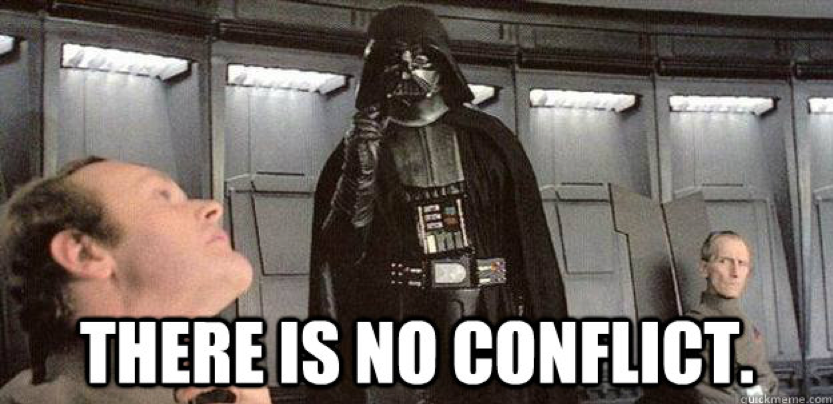In this section, we will define interpersonal conflict and explain the importance of managing it constructively.

11.1.1: Interpersonal Conflict
Conflict occurs due to real or perceived incompatible goals, scarce resources, or opposing viewpoints. It can be expressed both verbally and/or nonverbally, explicated stated or passively conveyed, and ranges on a continuum from nearly imperceptible (e.g., giving someone the ‘cold shoulder’) to very obvious (e.g., verbally yelling).
Conflict is an inevitable part of close relationships and can take a negative emotional toll. It takes effort to ignore someone or to be passive aggressive, and the negative feelings of anger or guilt we may feel after blowing up at someone are valid. However, conflict isn’t always negative or unproductive. In fact, numerous research studies have shown that the number of conflicts in a relationship is not as important as how the conflict is handled (Markman et al., 1993).
Improving your competence in dealing with conflict can yield positive effects in the real world. Since conflict is inevitable in our personal and professional lives, the ability to manage conflict and negotiate desirable outcomes can help us be more successful. Whether you are trying to decide what brand of flat-screen television to buy with your partner or discussing the upcoming political election with your mother, the potential for conflict is present.
Being able to manage conflict situations can make life more pleasant as opposed to what we may feel if we let a situation stagnate or escalate. Additionally, when conflict is well managed, it has the potential to lead to more rewarding and satisfactory relationships (Canary & Messman, 2000). The negative effects of poorly handled conflict could range from an awkward last few weeks of a semester with a college roommate to violence or divorce.